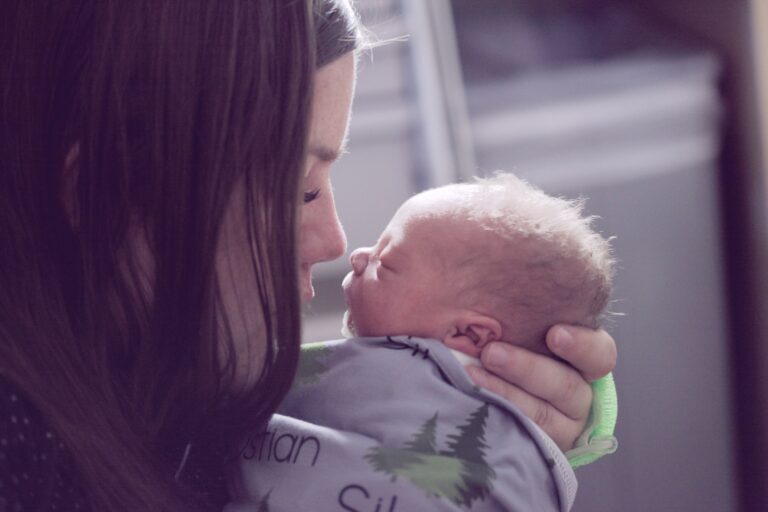Many couples find it hard to have sex after giving birth. This can be because of the pain of penetrative sex and because their hormone levels are out of balance.
It’s also normal to feel tired and overwhelmed after having a baby. This may make you less interested in sex. It’s important to use a lubricant until your body recovers.
How long should I wait?
The physical changes that occur during pregnancy and delivery can make it hard to feel sexually aroused. Many women also experience a drop in their hormone levels after birth, especially during breastfeeding (which prevents ovulation). That, combined with sleep deprivation and the demands of caring for a newborn, can often leave new moms feeling like they’re not quite ready to have sex.
Plus, the cervix is likely still tender and can be easily irritated during sex. This is why a lot of new moms report painful sex, regardless of whether they had a vaginal or C-section delivery. Some light bleeding after sex is a normal part of recovery, too. It’s called lochia, and it helps your body get rid of the extra blood and tissue that built up during pregnancy. It usually stops after 10 days, but you may experience it for up to six weeks after delivery.
The key thing to remember is that your health care provider will let you know when it’s safe for you to have sex again after giving birth. They’ll do a pelvic exam and check your vagina, uterus, and cervix to see if they’re healed. In general, most experts recommend waiting at least four to six weeks before attempting penetrative sexual activity.
How do I know if I’m ready?
When you’re recovering from childbirth, sex may be the last thing on your mind. And that’s completely normal. After all, your body has undergone extraordinary changes and needs time to recover – physically and emotionally. For birthing mothers, interest in sex typically returns within 1-3 months of having a baby. But it’s important to listen to your body and do what feels right for you and your partner.
You’ll likely need to wait until your health care provider gives you the all-clear to resume sexual activity at a postpartum checkup. They’ll do a pelvic exam to look at your labia, vagina, uterus and cervix to make sure they are healed and healthy enough for sex. If you had a cesarean delivery, they’ll also check your incision area to make sure it’s healing well.
Once you’re medically cleared for sex, the most important thing is to use contraception if you decide to have it. This is because breastfeeding causes a delay in your periods, meaning you could become pregnant again even if you’re not having sex. You can ask your GP, health visitor or family planning clinic for advice about contraception. There are also other ways to be close to your partner without penetration, such as kissing, mutual masturbation and massage. You and your partner can try these out to see if you’re comfortable with them before having penetrative sex.
How do I know if my partner is ready?
A new baby can be exhausting and physically demanding. You may be sleep deprived and feeling “touched out” by the end of the day, and you might not be all that interested in sex. That’s totally normal.
Even if your practitioner gives you the go-ahead, it’s usually best to wait until you’re physically and emotionally ready for sexual intimacy again. Penetrative sex can aggravate still-delicate tissues and stitches, which could slow the healing process or set the stage for infection. You may also have a perineal tear or episiotomy, which require more time to heal.
It’s also important to remember that if you had a C-section, your cervix will be dilated for weeks (even if it wasn’t the birth canal). If you resume sex with a dilated cervix, bacteria from your penis can travel directly up into your uterus, which can cause an infection or increase your risk of postpartum hemorrhage.
If you’re still feeling uncomfortable, try to find other ways of maintaining physical closeness with your partner. For example, kissing and cuddling are fun and safe ways to be intimate. Eventually, your sex drive will return when you’re ready. Be patient and take it slowly, and you’ll get there. Just be sure to talk openly with your partner about your feelings and expectations, so you can decide together when it’s the right time.
How do I know if I’m in pain?
During the first week or so after birth, you may bleed from the vaginal opening (perineum). This is normal and can cause pain. To ease the pain, try using a maternity pad instead of tampons and bathing or showering in clean warm water often. Tell your midwife or health visitor if you lose large clots or are bleeding frequently.
You will probably notice reduced vaginal lubrication because of hormonal changes, so a personal lubricant could help. Talking about this with your partner can help you both agree on how to manage this.
Sometimes the birth experience is different than what you hoped for, and this can cause feelings of trauma or sadness. This is called postpartum depression and can affect you for up to a year after the birth. It can cause mood swings and anxiety. Find out more about PPD.
You can still get pregnant, even if you’re breastfeeding and your periods haven’t started yet, so it’s important to use protection until your doctor says it’s safe. This will usually be around six weeks after you give birth.
See Also:


